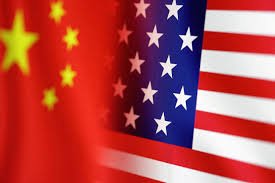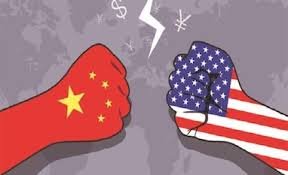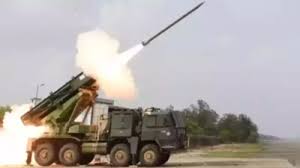China Imposes Sanctions on US Defence Firms Over Taiwan Arms Sales
In a move that escalates tensions between the United States and China, Beijing has announced sanctions on several American defence firms for their involvement in arms sales to Taiwan. This development underscores the longstanding dispute between China and Taiwan, with Beijing considering the island nation as a renegade province. The imposition of sanctions signals China’s strong opposition to any foreign interference in what it sees as its internal affairs.
The sanctioned American companies include Lockheed Martin, Raytheon, and Boeing Defense. These firms are major players in the global arms industry and have been involved in supplying advanced weaponry to Taiwan, which has faced increasing military pressure from China in recent years. The arms sales to Taiwan have been a contentious issue in Sino-American relations, with the US asserting its commitment to support Taiwan’s defense capabilities.
The Chinese government has framed these sanctions as a response to what it perceives as violations of its sovereignty and territorial integrity. By targeting American defence firms, Beijing aims to deter further arms sales to Taiwan and send a clear message to Washington about the consequences of its actions. However, the move is likely to exacerbate tensions between the world’s two largest economies, adding another layer of complexity to their already strained relationship.
The imposition of sanctions on US defence firms over Taiwan arms sales highlights the geopolitical complexities surrounding the Taiwan Strait. It underscores China’s assertiveness in safeguarding its core interests and territorial claims, while also signaling its willingness to challenge the dominance of the United States in the Asia-Pacific region. The repercussions of these sanctions are not limited to the economic sphere but also have broader implications for regional stability and security.

Why this News is important:
Escalating Tensions Between US and China The announcement of sanctions by China against US defence firms marks a significant escalation in tensions between the two global superpowers. This move underscores the deepening rivalry and competition for influence in the Asia-Pacific region, with Taiwan emerging as a flashpoint in Sino-American relations.
Asserting Sovereignty Over Taiwan By targeting American companies involved in arms sales to Taiwan, China is reaffirming its stance on the Taiwan issue and asserting its sovereignty over the island nation. Beijing views Taiwan as an integral part of its territory and opposes any attempts to challenge its authority over the region.
Impact on Global Arms Trade The imposition of sanctions on major US defence firms has implications for the global arms trade and military-industrial complex. It reflects China’s willingness to leverage its economic power to advance its strategic interests and counter perceived threats to its security.
Challenging US Dominance China’s decision to sanction American companies is a bold assertion of its power and influence in the face of US dominance in the region. It sends a clear message that Beijing will not hesitate to take action against perceived provocations or infringements on its core interests.
Regional Stability and Security Concerns
The escalating tensions between the US and China over Taiwan have broader implications for regional stability and security. The risk of miscalculation or conflict in the Taiwan Strait looms large, raising concerns among neighboring countries and the international community.
Historical Context:
Background on Taiwan-China Relations The issue of Taiwan’s status has been a longstanding source of tension between China and the United States. Following the Chinese Civil War, the nationalist Kuomintang (KMT) retreated to Taiwan in 1949, establishing a separate government. Since then, China has considered Taiwan as a renegade province that must be reunified with the mainland, by force if necessary.
US-Taiwan Relations The United States has maintained unofficial relations with Taiwan since severing official diplomatic ties in 1979 in favor of recognizing the People’s Republic of China (PRC) as the legitimate government of China. However, the US continues to support Taiwan’s defense capabilities through arms sales and other means, in line with the Taiwan Relations Act, which pledges to provide Taiwan with the means to defend itself.
5 Key Takeaways from “China Imposes Sanctions on US Defence Firms Over Taiwan Arms Sales”:
| Serial Number | Key Takeaway |
|---|---|
| 1. | China has announced sanctions on several US defence firms for their involvement in arms sales to Taiwan. |
| 2. | Sanctioned companies include Lockheed Martin, Raytheon, and Boeing Defense, major players in the global arms industry. |
| 3. | The move reflects China’s opposition to any foreign interference in what it sees as its internal affairs regarding Taiwan. |
| 4. | The sanctions escalate tensions between the US and China, highlighting the deepening rivalry and competition in the region. |
| 5. | The decision has broader implications for regional stability and security, raising concerns about the risk of conflict. |
Important FAQs for Students from this News
1. What prompted China to impose sanctions on US defence firms?
- China imposed sanctions on US defence firms in response to their involvement in arms sales to Taiwan, which Beijing considers a violation of its sovereignty.
2. Which American companies are targeted by the Chinese sanctions?
- Lockheed Martin, Raytheon, and Boeing Defense are among the American companies targeted by China’s sanctions for their role in supplying arms to Taiwan.
3. How does the Taiwan issue impact Sino-American relations?
- The Taiwan issue is a longstanding source of tension between China and the United States, contributing to the broader rivalry and competition between the two powers in the Asia-Pacific region.
4. What is the significance of the Taiwan Relations Act in US-Taiwan relations?
- The Taiwan Relations Act commits the United States to providing Taiwan with the means to defend itself, including through arms sales, despite officially recognizing the People’s Republic of China.
5. What are the potential implications of China’s sanctions on regional stability and security?
- The sanctions could heighten tensions in the Taiwan Strait and raise concerns about the risk of conflict, impacting regional stability and security in the Asia-Pacific region.
Some Important Current Affairs Links

















